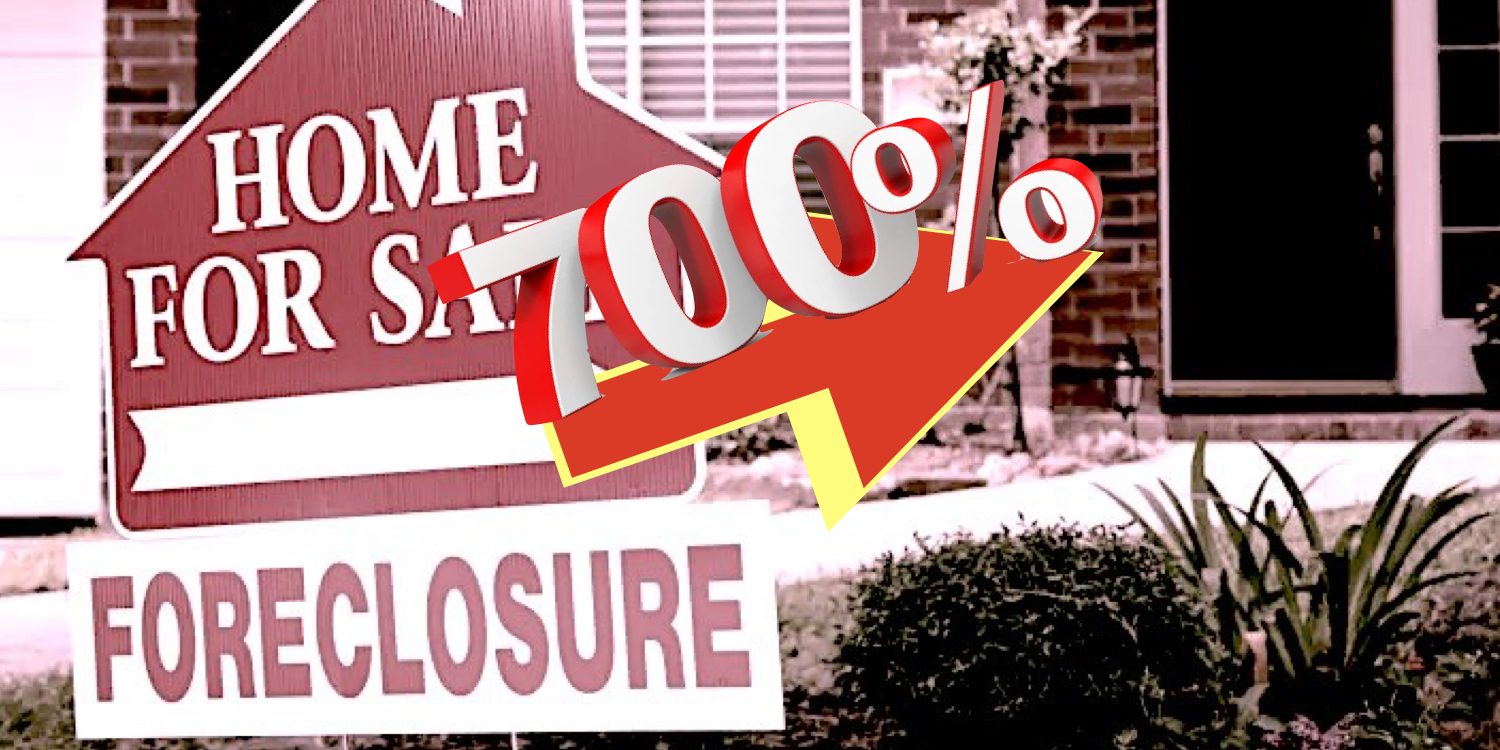There’s a dirty little secret about inflation. It doesn’t harm everyone equally and some actually benefit from it.
Continue readingHow Retirement became much more expensive
Here’s why man retirees may be forced to tap into their home equity to offset the impact of inflation and rising interest rates…
Continue readingWhy HELOCs will disappear
Here’s why HELOCs are likely to disappear…again.
Continue readingLike inflation, the retirement crisis is not transitory
If there’s one thing economic uncertainty can foster it’s an increased sense of urgency to prepare for retirement. American Advisors Group recently published the findings of their survey, Moving Forward. It found…
Continue readingHere’s where you can expect deflation instead of inflation
While inflation rips through the U.S. economy, deflation is about to appear here…
Continue reading6 Proposed HECM Changes You Should Know
HUD has proposed 11 changes to the HECM program- here are the six most notable
Continue readingUS Treasury Yield Inverts: Is a Recession Coming?
The US Treasury Index Inverted last week. Is this a sign of a coming recession?
Continue readingForeclosure starts surge 700%
Foreclosure starts are up 702% from December to January with 32,900 loans. What does this mean for the housing market and reverse mortgage lenders?
Continue readingHECM Proceeds will Drop Because of this
Defying Gravity- It’s not falling home prices that will reduce reverse mortgage eligibility
To see how first-world economies may react to the pandemic’s repercussions we may need to look no further back than the 1970s stagflation- That is an economy with increasing inflation and a stagnant economic output or GDP. Think of it as a recession coupled with the increasing cost of goods and services.— That is an excerpt from my comments from August 10th, 2020 on this show. Unfortunately, stagflation appears not to be such a far-fetched possibility. Let’s examine our current economic state of affairs and the potential impact on the eligibility of older homeowners to qualify for a reverse mortgage.
First, there’s no denying that supply chain interruptions and shipping costs have contributed to the increasing cost of goods and services, but there’s something much more significant the media is not telling you. 40% of US dollars in circulation were printed since the Covid-19 pandemic began.
Is there any chance that too many dollars chasing goods and services are driving record inflation? The Federal Reserve Chairman thinks not. Fed Chair Jerome Powell dismissed money printing as the source of surging inflation and instead points to an imbalance of supply versus pent-up demand as the economy reopens up in the wake of the pandemic. Powell believes financial innovations- whatever those are, mean that there’s is no longer a link between massive money-printing and inflation. Perhaps there’s ‘nothing to see here’ as some say.
While this massive injection of money has benefited Wall Street and hedge funds, it is average Americans who will be stuck paying the bill.
So in these uncertain economic times what stands to reduce the future eligibility of older homeowners to get a reverse mortgage?
[read more]
Most likely it won’t be falling home prices. The Federal Reserve’s planned series of interest rate hikes are unlikely to cause a bust in home values. Sure, home prices were propped up by untenably low interest rates helping create an asset bubble, however, it’s a continued lack of housing supply that is likely to protect home prices from falling as interest rates climb.
Bank of America predicts that U.S. home values will be up 10% by the end of 2022. Truth be told, real estate companies and economists have a mixed record forecasting where the housing market is headed. For example, early in the pandemic Zillow and CoreLogic predicted home values would drop by spring 2021. Instead, home values posted an 18% gain that year.
So what’s the potential future impact of eligibility? Today a 74-year-old homeowner with a $350,000 home would qualify for $183,400 with an expected rate of 4.25%. Having a mortgage payoff of $175,000 that would leave them approximately $8,400 remaining to finance fees, closing costs, and insurance. Fast forward to 2023 and the home has appreciated 5% to $367,500 but the expected rate that determines his borrowing power has jumped to 5.25%. Despite a gain in home value and being one year older their gross principal limit is $176,000 thanks to a higher interest rate which leaves them short to close to cover the loan fees and insurance after paying off their mortgage. Had they secured a reverse mortgage today they could have created a buffer against the ravages of inflation by eliminating their monthly mortgage payments.
Until unemployment climbs or foreclosures surge beyond expectations, home values are unlikely to crash. The bigger threat for future eligibility will be increasing interest rates. If the housing market is truly in an asset bubble, then declines in home values would follow. For now, we should keep a watchful eye on the central bank’s rates.
Resources:
Fortune: Where home prices are headed through 2023, as forecast by Bank of America
SOFX: 80% of all US dollars in existence were printed in the last 22 months
Washington Post: Inflation has Fed critics pointing to spike in money supply
[/read]
Do Reverse Mortgages Transform Home Debt into an Asset?
Inflation is at its highest level since 1982
The latest inflation numbers are out and they’re downright unsettling, especially for retired Americans living on a fixed income.
Last week inflation in the U.S. jumped to its highest level since January 1982. CNN Business reports the Consumer Price Index rose 7.9% in the last 12 months. The Bureau of Labor Statistics tracks consumer costs using what’s called a ‘basket of goods’. That basket is heavily influenced by housing and rental costs, food, and energy costs; each of which has skyrocketed in the last year.
For example,
[read more]
energy costs have spiked 25% from February 2021 to February 2022. And that number does not include the 70 cents per gallon surge in the price of gas at the pump last week alone!
The honest truth is inflation will be with us for some time and will not go away quickly. Prudent older Americans should prepare for a continued increase in the cost of living.
So how does a reverse mortgage transform mortgage debt into an asset? If you define an asset as a benefit to the borrower then it certainly is. If you use the accounting definition we find that a reverse mortgage is not an asset that offsets liabilities. However, what a reverse mortgage does provide is the asset or benefit of increased cash flow.
A homeowner refinancing their existing traditional mortgage into a reverse allows them to stop making monthly principal and interest payments altogether. That’s why reverse mortgage borrowers never receive a payment book to submit regular payments or any payments whatsoever. Can they choose to make payments? Of course. And just like any mortgage, the homeowner must continue to pay property taxes and homeowner’s insurance to avoid defaulting on the loan.
What about homeowners with no mortgage balance? If they’re retired then they are likely living on a fixed income that cannot absorb the erosion of the dollar. When the cost of filling their gas tank increases by $50 in a month where will they find the extra money to make up the difference? What expenses can they realistically cut? Just how far are older homeowners willing to give up the things that give them the quality of life that includes as eating out, driving to visit family, or social engagements? At what point does paying off a mortgage become more important than one’s own happiness and sense of well-being?
Inflation is likely to worsen forcing many older Americans to become miserly or creative. The creative option is more widely available thanks to today’s low interest rates and high home values. However, with the Federal Reserve planning to enact a series of interest rate hikes, that window of opportunity is closing fast. Transforming mortgage debt into the asset of a loan with no required installment payments not only frees up much-needed cash each month, it allows the prudent to prepare for what may be one of the most tumultuous economic periods in American history.
Who will sound the alarm? Who will inform older homeowners that there are options to convert their housing debt into a non-recourse loan that doesn’t require principal and interest payments? Their financial advisor? How about their accountant? Will their mortgage broker who helped them refinance their loan 2 years ago enlighten them? Likely neither will. That’s where dedicated reverse mortgage professionals like yourself can begin reaching out to both homeowners and professionals alike before it’s too late.
[/read]











